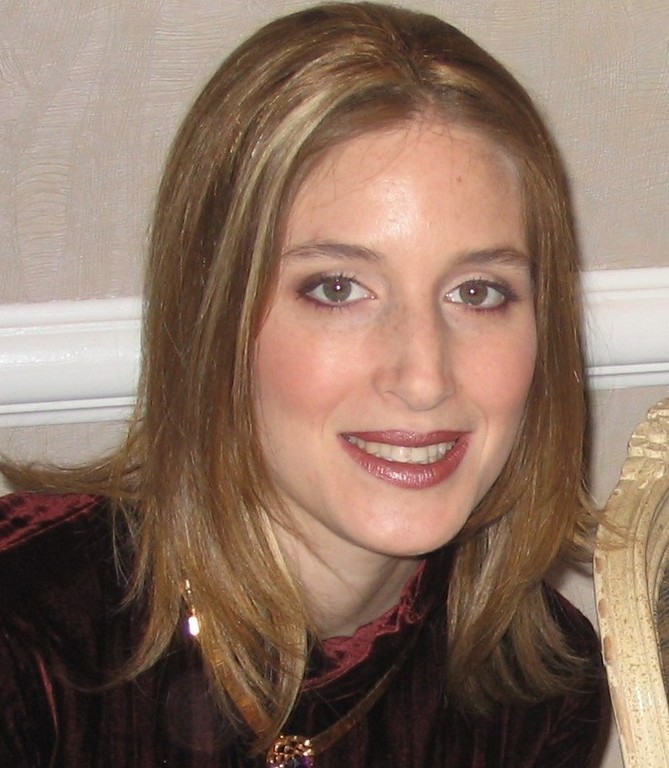Putting faces to the names
Ohel’s new advertising campaign adds a personal touch
By Michael Orbach
At first glance, it looks like any other ad campaign might, an advertisement for foster-care and adoption featuring four images: a girl in a wedding dress, two brothers sitting next to each other, a middle-aged couple standing together and a boy holding a handwritten sign that reads “SEEK FOSTER PARENTS.”
The backdrops alternate over different colors, from midnight blue to brick brown, but something in the photos look off. Aside from the photo of the boy with the sign, the photos all appear as if they came from a family album instead of an ad campaign. And that’s probably the greatest thing about them.
As part of a new campaign for Ohel Children’s Home and Family Services, the advertisements are an attempt to de-stigmatize the nature of foster care and adoption in the Jewish community. Rather than the standard fare of models and stock photos, the eight-week campaign features three photographs of people who are currently involved or who have previously been involved in Ohel.
The campaign strikes a somewhat unusual tone in the Jewish community, which tends to keep such matters quiet and anonymous. The girl in the wedding dress is Dawn, who, together with her three siblings, was adopted by the Schickman family. The two brothers are Ephraim and Shmuel, who became brothers when Shmuel was officially adopted this past June. The couple is Susan and Michael Horowitz, foster parents to more than 15 foster children in the last 10 years, in addition to their own three biological children.
And the boy holding the “SEEK FOSTER PARENTS” sign? Well, that’s Derek Saker’s kid.
Saker, the force and brains behind the campaign, is Ohel’s new Director of Communications.
“We’re trying to address the latent reasons why people don’t become foster parents. The reasons people won’t say in public,” Saker said in a telephone interview, explaining the goal of the campaign.
The campaign had an unlikely beginning, stretching back to Saker’s days working for Frumster, the popular Jewish dating site. As Director of Frumster, Saker was charged with changing the image of online Jewish dating in the observant world. The Ohel campaign employs a similar concept, putting a human face on adoption and foster care. It is part of Saker’s larger campaign to put a more human face on the 40-year-old social services agency.
Initially, Saker contracted with an advertising agency to create the ads, but with the deadline approaching found that he was unhappy with the agency’s work. He took the project back, and Ohel’s own graphic designers saw it through to completion.
Ohel currently employs over 1,300 people and provides services in New York, New Jersey and Florida, ranging from foster and adoptive care to mental health services as well as services for the developmentally disabled through its Bais Ezra arm.
While the campaign’s long-term results are still unknown, Saker said there has been an initial increase in interest since the campaign began three weeks ago.
The campaign, according to Saker, is targeted at three misconceptions about foster care and adoption: that foster children will never be normal, that foster care will cause sibling rivalry and that foster parents are either superhuman or crazy.
Adoption and foster care is somewhat of an unspoken topic in the Orthodox community. While Ohel didn’t provide numbers of their exact caseload, a spokesperson said that in the last four months, three children required foster care.
“We kind of live with this idea that it doesn’t happen in the Jewish world, that kids don’t come from dysfunctional homes,” said Sherri Weiss, the mother of Ephraim and Shmuel. “We don’t think of it as a Jewish concept.”
The idea of going “public” was difficult for some of the people featured in the campaign.
“We’re not rushing to be in any ads, but we know the importance of getting foster parents,” explained Michael Horowitz. “I wanted them to add a little more hair and whiten my teeth,” he added jokingly.
Being part of the campaign amounts to coming full-circle for the Horowitzes, who became foster parents for the first time in 1995 after seeing an advertisement for Ohel in a Jewish newspaper. They are the recent recipients of the Administration of Child Services Gold Heart award for exceptional parenting.
Attempting to gauge the effectiveness of the campaign, The Jewish Star spoke with Stuart Elliott, an advertising guru who writes a column on the subject for The New York Times.
“You have people and names,” Elliott said. “That’s a time honored tactic to get people to respond in tangible way. It goes a long way towards authenticity. People are always looking for authenticity.”
And in case you were wondering about Saker’s son?
“He’s available for adoption when he’s bad, for a twenty-four hour basis,” Saker said. Calls to Saker’s wife were not returned.

 48.0°,
Light Rain Fog/Mist
48.0°,
Light Rain Fog/Mist 




